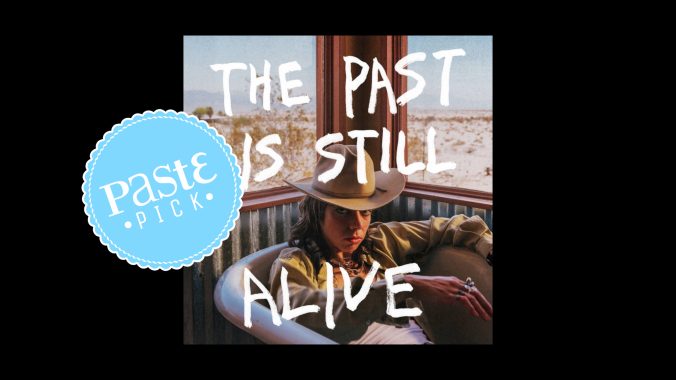Hurray for the Riff Raff’s The Past Is Still Alive is a Celebratory Measure of Love, Sanctuary and Defiance
Alynda Segarra returns triumphantly to folk influences for their eighth album, with radical honesty and an explorative focus on solidarity.

In a music industry context, the word “Americana” first emerged in opposition—a country variant that rejected Nashville’s 1990s pop-production obsession with traditional sounds in pursuit of some mythic authenticity. Since then, the work has been to determine what it stands for. Recently, its roots in Black, Indigenous and Latinx music have seen a long-overdue recognition; in 2020, the Americana Music Association defined the genre as pulling from “the rich threads of country, folk, blues, soul, bluegrass, gospel and rock.” The Band, Pete Seeger and Woody Guthrie are also cited today as early influences, the latter two championed for their anti-establishmentism and enlightened social values—and the former, who’ve also been re-examined for their fascination with Confederate nostalgia. The question endures: What exactly does Americana rebel against, and who exactly are its outcasts?
I bring up this history lesson because Alynda Segarra, the creative force behind Hurray for the Riff Raff, has long been demanding more than acoustics from the thing we call Americana. In Jonathan Bernstein’s 2018 excavation of the genre, Segarra called out its coziness with the very establishment it pits itself against, declaring “these heroes are not my heroes.” Hurray for the Riff Raff’s music is rooted in similar influences, but definitely not bound to them: in their discography, folk paeans like those on Small Town Heroes (which turns 10 this year) stand next to the Nuyorican rhythms of The Navigator.
With their last album, 2022’s Life On Earth, Segarra broke the mold entirely—opening with the synthy power ballad “WOLVES” before flowing into tracks that draw from Bad Bunny and Beverly Glenn-Copeland. Hurray for the Riff Raff not only expands the umbrella of “Americana”; it challenges the very structures on which we hang it, and the legacies of pain that accompany them. On “Ogallala” from their new album, The Past Is Still Alive, Segarra explores that pain with memories of fleeing the cops and hopping trains: “I was in love with my American footprint / Tracks of blood left out in the snow.”
-

-

-

-

- Curated Home Page Articles By Test Admin October 21, 2025 | 3:10pm
-

- Curated Home Page Articles By Test Admin October 21, 2025 | 2:57pm
- Urls By Test Admin October 21, 2025 | 2:57pm
- Curated Home Page Articles By Test Admin October 21, 2025 | 2:55pm
-

-

-

-

-

-

-

-

-

-

-

-

-

-

-

-

-

-

-

-

-

-

-

-

-

-

-

-

-

-

-




































